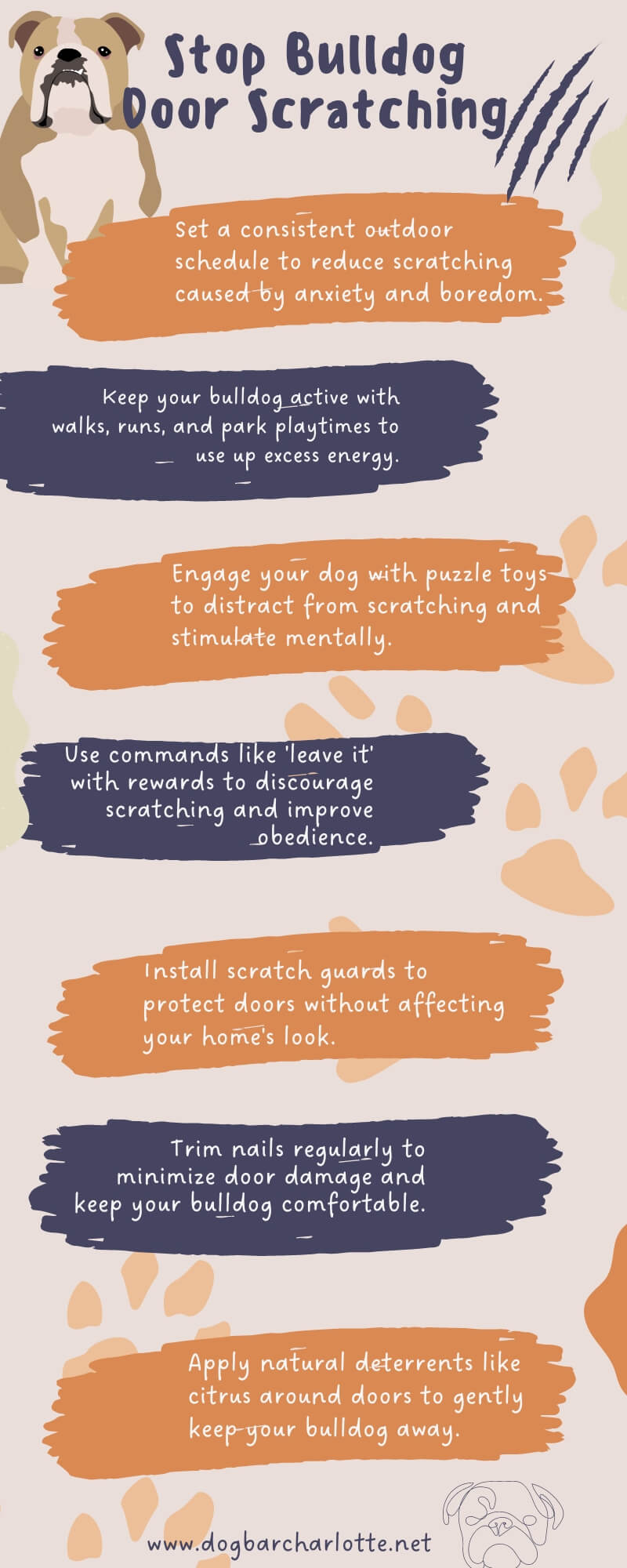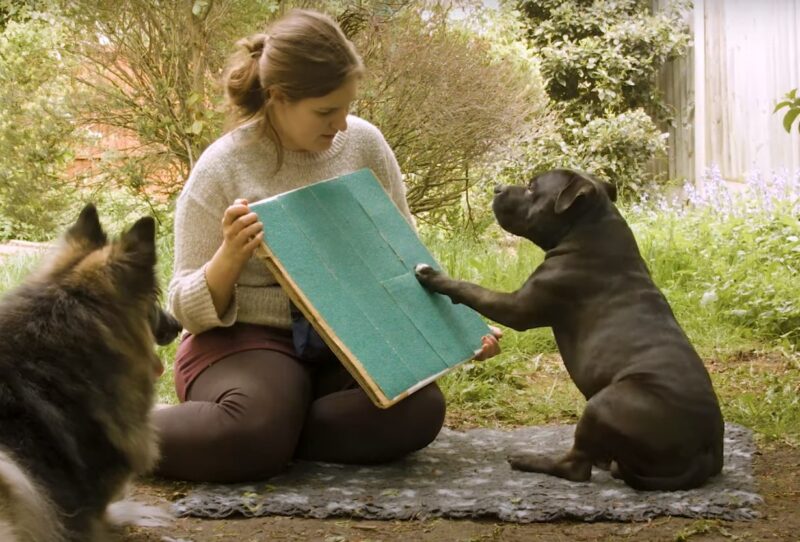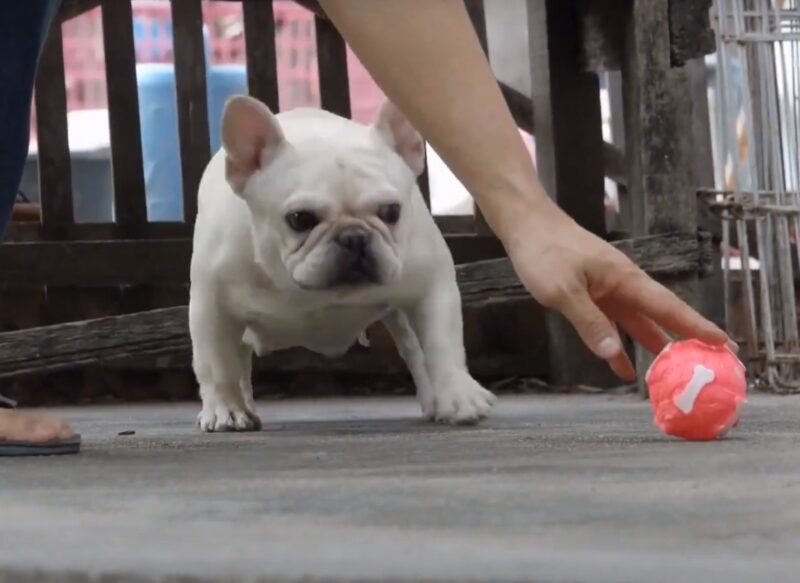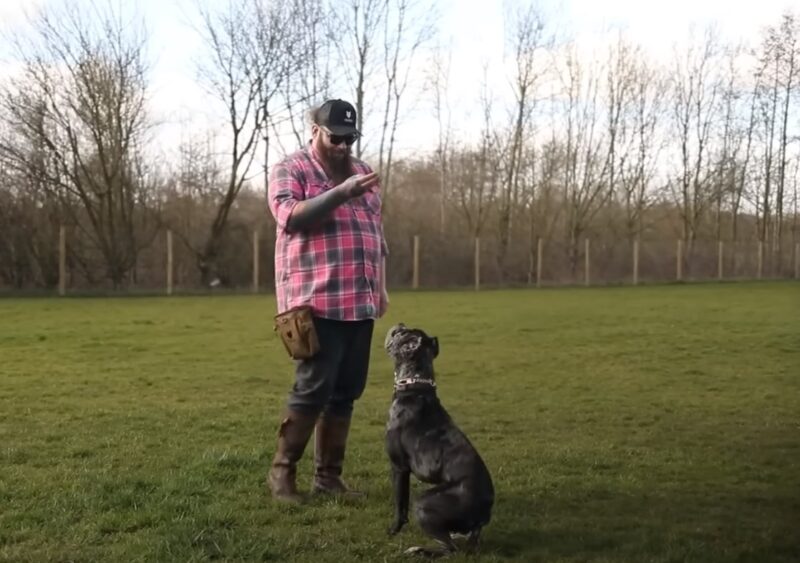Are you tired of looking at your door, witnessing the aftermath of your bulldog’s latest scratching spree? Bulldogs, with their charming demeanor and distinctive appearance, can sometimes develop habits that are less than desirable – like scratching at the door.
This behavior can stem from a variety of reasons, including excitement, boredom, or the simple need to go outside. Fortunately, with some creativity and consistency, you can guide your pet toward better habits.
To help you with this issue, we will discuss ways you can stop your dog from scratching the door.
Let’s begin.

1. Routine Is Key
Establish a consistent routine for going outside is numero uno. Bulldogs enjoy having routines, and knowing when to expect their next outdoor adventure can reduce door scratching. This predictability can help alleviate anxiety and boredom, two common triggers for this behavior.
A well-structured schedule not only helps with behavioral issues but also aids in overall training and discipline. Ensure the routine includes varied activities to keep it interesting for your dog.
2. Exercise Regularly

A tired dog is a happy dog. Regular exercise helps burn off excess energy, making your door far less appealing as a scratching post.
Conducting different forms of physical activity can prevent the routine from becoming monotonous, such as:
- walks
- runs
- playtime in the park
This variety ensures that your bulldog remains engaged and looks forward to these sessions, further reducing the likelihood of scratching out of boredom.
3. Interactive Toys
Invest in interactive toys that keep your bulldog mentally stimulated. Puzzle toys or treat-dispensing toys can divert their attention away from the door. These toys not only entertain but also challenge your dog, providing a productive outlet for their energy.
Rotating the toys to keep them new and exciting will maintain your bulldog’s interest. Regularly introducing new puzzles can also help in developing their problem-solving skills.
Interesting Fact: The Global Pet Toys Market touched $8 billion in 2022. It is projected to reach US$ 13 billion by 2030.
4. Training and Commands

Teach your bulldog commands such as “leave it” or “sit” to discourage scratching when it starts. Positive reinforcement is key; reward them for obeying.
This training strengthens your bond with your pet and enhances communication.
Consistency in command usage and rewards is essential for effective learning. Over time, this can also increase your dog’s overall obedience, making them more responsive to your directives.
5. Use a Scratch Guard
Install a scratch guard on the door. These clear plastic sheets protect your door and deter your dog from scratching. They are easy to install and can be a cost-effective way to prevent damage to your home.
Scratch guards are barely noticeable and do not detract from your home’s aesthetics. They can also be used on furniture and other areas where your dog might scratch.
6. Provide Alternatives

Give your bulldog an appropriate outlet for their scratching. A heavy-duty scratching post or mat can satisfy their need to scratch without damaging your door.
Encouraging the use of these alternatives through positive reinforcement can quickly teach your dog where it’s acceptable to scratch.
Placing these scratching posts or mats in areas where your bulldog spends a lot of time ensures they have easy access. This strategy redirects the natural behavior rather than attempting to suppress it entirely.
7. Nail Care
Regularly trimming your dog’s nails can reduce the damage caused by scratching. Smooth-edged nails are less likely to leave marks on your door.
Caring for the nails can also prevent pain and discomfort for your bulldog, which can occur from overgrown nails.
Conducting nail trimming early in your pet’s life will help them become comfortable with the process.
It’s also an opportunity to check for any foot or nail issues that might be causing discomfort and contributing to the scratching behavior.
8. Attention and Affection

Sometimes, scratching is a plea for attention. Ensure you’re giving your bulldog plenty of love and affection, so they don’t feel the need to scratch for attention.
Regular interactive sessions, such as playing or cuddling, can significantly reduce feelings of neglect or boredom.
It’s also important to verbally praise your dog for positive behavior, reinforcing the actions you want to see.
Creating a nurturing environment will help your pet feel secure and loved, minimizing stress-related behaviors.
9. Use Deterrents
Certain smells, like citrus or vinegar, can deter your bulldog from scratching. Apply these scents around the door area as a natural deterrent.
It’s crucial to use these deterrents gently and sparingly, as overpowering smells can cause discomfort to your bulldog’s sensitive nose.
Adding deterrents into a cleaning routine can subtly keep your dog away from certain areas without causing them stress.
Always choose pet-safe products to ensure the health and safety of your dog.
10. Seek Professional Help

If the scratching persists, consider seeking help from a professional dog trainer. They can offer personalized strategies and support to curb this behavior.
A professional can observe your bulldog’s behavior in the context of their environment and provide insights that might not be apparent to you.
They can also teach you advanced training techniques and how to implement them effectively.
In some cases, consulting with a veterinary behaviorist might be necessary to address any underlying health or psychological issues contributing to the scratching behavior.
The Bottom Line
Stopping your bulldog from scratching the door requires patience, understanding, and a bit of creativity. By addressing the root cause, providing ample exercise, and employing deterrents, you can protect your doors and nurture a happier, more content dog.
Always keep in mind that every dog is unique, and what works for one may not work for another.
Don’t be afraid to try different strategies to discover what best meets the needs of your furry friend.










